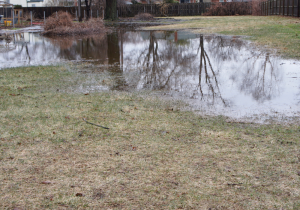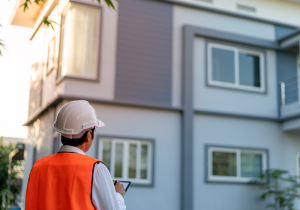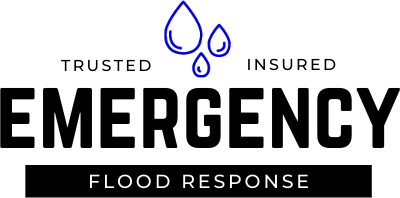Flooding is one of the most daunting challenges homeowners and property managers face. Understanding the common causes of residential flooding and how to prevent them can save you from devastating losses and ensure your home remains a safe haven.
In this comprehensive guide, we will explore the leading causes of residential flooding, the impact these floods can have on homes and communities, and proactive measures you can take to protect your property. From managing heavy rains and stormwater to addressing plumbing issues and appliance failures, we’ve got you covered with practical tips and valuable insights.
Common Causes of Residential Flooding
 Heavy Rain and Stormwater Management
Heavy Rain and Stormwater Management
Heavy rainfall is one of the most common causes of residential flooding. When vast amounts of rainwater accumulate in a short period, the ground may become saturated, leaving no place for the excess water to go. This overflow can lead to significant flooding, particularly in areas with poor stormwater management systems.
To manage stormwater effectively, ensure your property has proper drainage systems in place. Gutters and downspouts should be clear of debris to allow rainwater to flow freely away from your home. Additionally, consider installing rain barrels or a rain garden to capture and utilize excess rainwater, reducing the risk of flooding.
Malfunctioning or Blocked Drainage Systems
Another frequent cause of residential flooding is malfunctioning or blocked drainage systems. Over time, drains can become clogged with leaves, dirt, and other debris, preventing water from flowing correctly. This blockage can lead to water backing up and flooding your home.
Regular maintenance of your drainage systems is crucial in preventing blockages. Schedule routine inspections and cleanings to ensure everything is functioning correctly. If you notice any slow-draining water or unusual smells, address the issue immediately to prevent potential flooding.
Plumbing Issues and Water Leaks
Plumbing issues and water leaks are significant contributors to residential flooding. Burst pipes, broken water heaters, and leaky faucets can all lead to water accumulating in your home, causing extensive damage.
To prevent plumbing-related flooding, conduct regular inspections of your home’s plumbing system. Look for signs of wear and tear, and fix any leaks promptly. Installing a water leak detection system can also help you catch issues early before they escalate into major problems.
Appliance Failures
Household appliances such as washing machines, dishwashers, and refrigerators can sometimes fail, leading to unexpected flooding. A burst hose or malfunctioning component can release large amounts of water into your home.
To minimize the risk of appliance-related flooding, ensure that all appliances are well-maintained and regularly inspected. Replace worn-out hoses and parts, and consider using stainless steel braided hoses for added durability. Additionally, never leave appliances running when you’re not at home to avoid potential disasters.
The Impact of Residential Floods on Homes and Communities
Structural Damage
Flooding can cause severe structural damage to your home. Water can weaken the foundation, walls, and floors, leading to costly repairs and potential safety hazards. Even a small amount of water can compromise the integrity of your property over time.
Taking proactive measures to prevent flooding can save you from significant structural damage and the associated repair costs. Regular inspections and maintenance are essential in safeguarding your home’s foundation.
Health Hazards
Floodwaters often contain harmful bacteria, chemicals, and other contaminants. Exposure to these pollutants can pose serious health risks to you and your family. Mold growth is another common consequence of flooding, which can exacerbate respiratory issues and allergies.
Ensuring proper flood prevention measures are in place can help protect your family’s health. In the event of a flood, always prioritize safety and seek professional help for thorough cleanup and disinfection.
Financial Burdens
The financial impact of residential flooding can be overwhelming. Repair costs, temporary relocation expenses, and loss of personal belongings can add up quickly. Additionally, if your home insurance does not cover flood damage, you may face significant out-of-pocket expenses.
Investing in flood prevention measures is a wise financial decision. By taking proactive steps, you can minimize the risk of flooding and avoid the financial burdens associated with water damage.
Community Resilience
Residential flooding doesn’t just affect individual homes; it impacts entire communities. Flooding can disrupt local infrastructure, transportation, and essential services. Building community resilience through collective flood prevention efforts can help mitigate these effects and ensure a quicker recovery.
Engaging with your neighbours and local authorities to develop community flood preparedness plans can enhance overall resilience. Working together, you can create a safer environment for everyone.
Proactive Measures for Flood Prevention
 Regular Home Inspections
Regular Home Inspections
Conducting regular home inspections is a critical step in flood prevention. Identify potential vulnerabilities and address them before they become significant issues. Pay close attention to your home’s foundation, roof, plumbing, and drainage systems.
By staying proactive, you can catch potential problems early and take the necessary steps to prevent flooding. Keep a checklist of inspection points and schedule routine maintenance to ensure your home is always protected.
Implementing Proper Drainage Solutions
Effective drainage solutions are essential in managing stormwater and preventing flooding. Ensure that your property has well-designed gutters, downspouts, and drainage systems to direct water away from your home.
Consider landscaping adjustments, such as grading your yard to slope away from the house and planting water-absorbent vegetation. These measures can help control water flow and reduce the risk of flooding.
Upgrading Plumbing and Appliances
Old or faulty plumbing and appliances can significantly increase the risk of flooding. Upgrading to modern, high-quality components can provide better reliability and reduce the chances of leaks and malfunctions.
Invest in water-efficient fixtures and appliances to minimize water wastage and lower the strain on your plumbing system. Regular maintenance and timely replacements are crucial in preventing plumbing-related flooding.
Understanding the common causes of residential flooding and how to prevent them is essential for homeowners and property managers alike. By taking proactive measures, such as regular inspections, proper drainage solutions, and upgrading plumbing and appliances, you can protect your home and loved ones from the devastating effects of floods.

